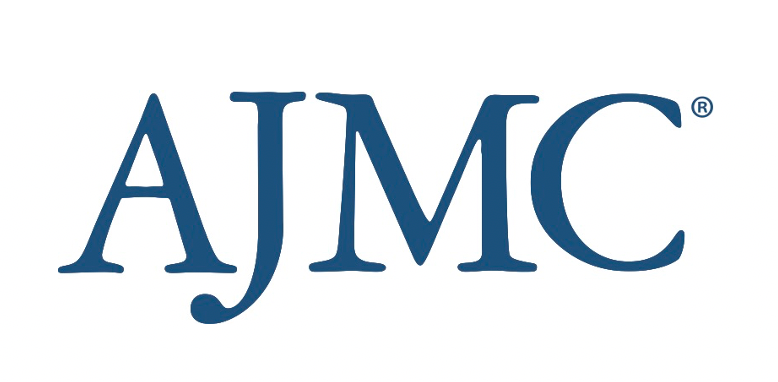
Health Care Cost
Latest News
Latest Videos

CME Content
More News

The senate hearing held by the US Senate Committee on Health, Education, Labor, and Pensions, led by Sen. Bernie Sanders (I, Vermont), chairman of the committee, and ranking member Sen. Bill Cassidy, MD, (R, Louisiana), addressed the critical issue of physician and health care worker shortages, as well as the maternal health crisis, in the US.

This real-world US study describes individuals with hemophilia B who experience bleeds despite factor replacement therapy and quantifies the associated comorbidity and health care resource utilization burden.

A new study highlights significant disparity in reimbursement rates across states between hospitals and Medicare; the first patient to receive a genetically modified pig kidney has died; research examines outcomes of over 500 patients receiving medication abortion pills by mail.

Session speakers at the 2024 meeting of ISPOR—The Professional Society for Health Economics and Outcomes Research share their favorite parts of the conference.

The CEO of SCAN Health Plan discusses its first-ever Environmental, Social, and Governance Report.

Challenges in developing next-generation cancer therapies persist; research indicates widespread utilization and hurdles in affordability and access to glucagon-like peptide-1 (GLP-1) medications; legislation seeks to legalize therapeutic use of psychedelics in California.

Public hospitals were significantly more likely to sustain access to unprofitable services following 340B Drug Pricing Program participation, while nonprofit hospitals were mostly unaffected, according to a recent study.

Results featured at the Academy of Managed Care Pharmacy 2024 annual meeting revealed a pattern of prior authorization rejections that could delay necessary therapeutic treatments for various patient groups.

In the series debut episode of "Frameworks for Advancing Health Equity," Mary Sligh, CRNP, and Chelsea Chappars, of Allegheny Health Network, explain how the Urban Health Outreach program aims to improve health equity for individuals experiencing homelessness.

For patients prescribed diabetes, hypertension, and hyperlipidemia medications, nonadherence to CMS Star Ratings quality measures of medication adherence was associated with increased health care resource utilization and costs.

New therapies are helping patients, but are also driving up overall costs of care.

William Padula, PhD, MSc, MS, assistant professor of pharmaceutical and health economics, University of California Alfred E. Mann School of Pharmacy and Pharmaceutical Sciences, discusses the benefits and advancements of cost-effectiveness analysis to improve decision-making and efficiency.

A CMS official discusses a draft guidance on the second round of drug pricing negotiations amid uncertainties over the first round of talks under the Inflation Reduction Act (IRA).

Fifty percent of US rural hospitals are facing financial problems; US lawmakers have called out the corporate spending of 3 large nursing home companies; hospice patients under Medicare Advantage are now facing uncertainty after the government ended its pilot program.

Kimberly Westrich, MA, of the National Pharmaceutical Council, explains how the 340B program is linked to increased drug spending and the hidden costs associated with it.

Research into the Inflation Reduction Act evaluated payer concerns, patient and physician behavior, which patients will benefit from the first 10 drugs selected for price negotiation, and the ripple effect into Medicaid at the state level.

The Medicare trust fund is now expected to deplete in 2036, with the Inflation Reduction Act being credited for at least some of the extension.

With more therapies available in bladder, kidney, and prostate cancers, collaboration among health care providers can help ensure patients are getting the most appropriate care for their type and stage of cancer, said Mary Dunn, MSN, NP-C, OCN, RN, of University of North Carolina.

In 2024, the Asembia Specialty Pharmacy Summit celebrated 20 years and speakers highlighted the conversations around improving access and affordability taking place at the meeting.

This week, the Center on Health Equity and Access highlights a variety of gaps that exist in health care, spanning women's health, the rising rate of metabolic disease, and policy for LGBTQ+ and immigrant populations. The consensus among featured experts points to comprehensive care models.

Leaders at 49 accountable care organizations (ACOs) shared their perspectives on the Medicare Shared Savings Program, as well as a range of strategies for success and ongoing challenges.

While the novel payment models for expensive cell and gene therapies have been effective, they need to continue evolving, said Joe DePinto, MBA, of McKesson.

Representatives from ICON plc and Symphony Health joined forces at AXS24 to discuss the challenges of managing high-cost specialty drugs and how they influence self-funded employer benefit plan design and employee access to specialty medications.

There are multiple levers that need to be pulled to allow biosimilars to come to market more broadly in the US, explained Fran Gregory, PharmD, MBA, vice president of emerging therapies, Cardinal Health.

Doug Long, MBA, vice president of industry relations at IQVIA, covered a bevy of stakeholder investment–related topics in his presentation at AXS24 on trends in specialty pharmacy, chief among them challenges facing the industry, obesity medications, generics and biosimilars, new product launches, and the outlook for the US market.


















